Score another round—sort of—for alternative medicine. In what may be the funniest medical study fake-out so far, German scientists report that patients who received fake acupuncture in their lower back reported relief at almost-but-not-quite the same rate as those who received legit acupuncture: 44% of patients improved, versus 47% of those who received real acupuncture and 25% of those who received conventional treatment reported improvements.
medicine

Do You Really Need A Check-Up? Maybe Not.
We’re always hearing about how important it is to see your doctor for a check-up, but is it? The WSJ Health Blog noticed a study that says “no.”
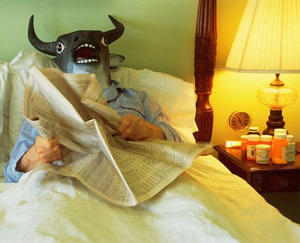
Antifungal Medication Makes You See Chewbacca
A new antifungal drug, voriconazole, causes patients to “develop a range of neurological side effects, including auditory and visual hallucinations,” within 24 hours to 2 weeks of beginning treatment. The drug is marketed as Vfend, and is administered intraveneously to treat serious fungal infections. The National Institute of Health has been testing the toxicity of the drug and reported the neurological side effects at a recent conference.
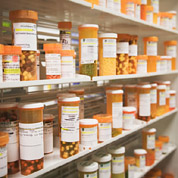
Is The "Wal-Mart Effect" Slowing Drug Inflation?
The inflation rate for prescription drugs—currently at 1 percent for the past 12 months—is at its lowest ever recorded in the past three decades, and some are speculating that Wal-Mart’s popular $4 generic drugs program is helping drive the costs down across the market.

Exercise Helps Depression As Well As Meds, Says New Study
If you’re blue, but not into treatments that require a prescription, hit the gym. In a recent study of 202 depressed adults, researchers found that those who participated in “group-based exercise therapy” showed the same results as those treated with antidepressants, while those who exercised at home showed slightly less improvement, and those who were given a placebo pill remained depressed.
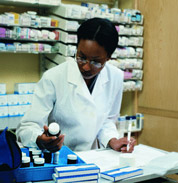
House Approves Drug Testing Bill, Senate & Prez Expected To Follow
This week, the House of Representatives passed a new bill that gives the FDA the power to require new warning labels on existing prescription drugs, and the power to request “post-approval” studies of medicines as warranted. It also gives the FDA the authority to levy fines as high as $10 million to companies that fail to comply. The bill passed with a 405-7 vote on Wednesday and is expected to be passed by the Senate and approved by the President.
../../../..//2007/09/14/a-us-federal-appeals/
A U.S. federal appeals court today invalidated the patent on Altace, a widely prescribed drug to treat high blood pressure. This clears the way for low-cost generic versions of the drug to hit the market immediately. King Pharmaceuticals, the company that makes Altace, is asking for a rehearing, but in the meantime it may lose its window of opportunity to “upgrade” Altace patients to a reformulated (and newly patented) version it was it planning on introducing in 2008. [Reuters]
../../../..//2007/09/13/mental-floss-has-a/
Mental Floss has a fun quiz that asks you to match actual warnings to popular drugs. It’s a good way to brush up on your side effect trivia, so you’ll know what to take to increase your gambling addiction but not interfere with your sleep driving. (Sadly, we only got 3 out of 10 correct.) [Mental Floss via BoingBoing]
../../../..//2007/09/12/americans-spent-more-than/
Americans spent more than $9 billion on the cholesterol drug Lipitor in 2004—more than any other drug, according to government estimates released today. “Cholesterol drugs in general raked in the most money for their makers,” followed by stomach acid drugs. [Reuters]
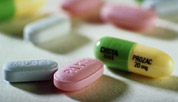
Did The Gov's Anti-Meds Warnings Work Too Well?
Some psychiatrists are claiming that the government’s “black box” warnings on the risks of antidepressants for teenagers have worked too well, to the point that they’ve scared off worried parents and lawsuit-sensitive doctors, leaving depressed teens undiagnosed and untreated. The rate of suicide among children and young adults jumped 8% in 2004, one year after the warnings went into effect—it was the biggest one-year spike in suicides for that demographic in 15 years, and psychiatrists worry it was caused in part by the 22% drop in prescriptions of antidepressants.

Vaginal Surgery Is All The Rage—But Is It Worth It?
Labiaplasty is exploding in popularity, but consumers aren’t always thinking about the possible risks involved, says the American College of Obstetricians and Gynecologists—which is why they issued a warning to the public last week that these are not “accepted” or “routine” procedures.
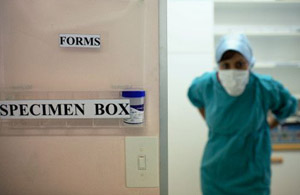
Should The Government Require Hospitals To Disclose Infection Rates?
Earlier this month the governor of New Jersey signed into law a regulation that requires all hospitals in the state to report MRSA infection rates (that’s the drug-resistant staph infection you always hear about). And last week, a sate-appointed panel in Massachusetts recommended that laws be passed requiring all hospitals to publicly report infection rates. Should the government regulate hospitals in this manner? And if your state doesn’t require it, is there any way you can find out on your own?

67% Of Consumers Satisfied With Their Health Insurance; Are 67% Of Consumers Drunk?
-
10% had trouble getting an appointment to see a doctor
21% had to deal with billing errors
25% had problems with their primary care providers
36% had trouble getting help when they called a plan representative for assistance

The $49 Million Hospital Bill
A billing error at a Southern Arizona hospital left one man with a hospital bill for $49 million, according to the AP.
A malfunction in new computer software occurred July 2 and affected statements for 587 patients who were treated at Northern Cochise Community Hospital in Willcox, said Kim Aguirre, director of patient financial service for the hospital.

Surgery With A Warranty?
What if your surgery came with a warranty? One group of hospitals in central Pennsylvania is trying it, according to the NYT:
The group, Geisinger Health System, has overhauled its approach to surgery. And taking a cue from the makers of television sets, washing machines and consumer products, Geisinger essentially guarantees its workmanship, charging a flat fee that includes 90 days of follow-up treatment.
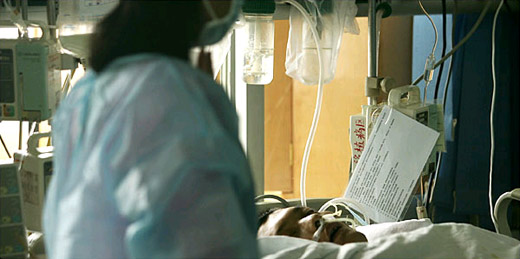
Counterfeit Cough Medicine Traced To Chinese Factory
A Chinese factory was the source of a fake chemical used in medicines that killled at least 100 patients, mainly children, after it was used to make cough medicine, NYT reports in an excellent 7-page investigation.
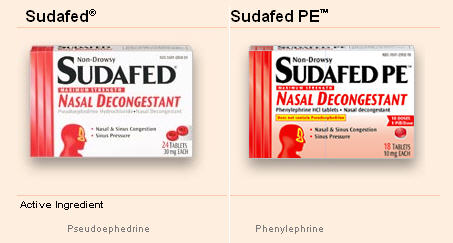
Sudafed PE: Pregnant Women Should Watch Out For Reformulated Medicines
Not to malign the good name of Sudafed, but it seems there is some debate out there as to whether or not pregnant women should take the reformulated “Sudafed PE.” Obviously, we are in no way doctors, nor do we know the first damn thing about pregnant woman, but we do know that several medicines have reformulated in order to stay on the shelves and we wanted to make sure people knew about it. Because Sudafed contains an ingredient used to make meth, some states now require it to be stored behind the pharmacist’s counter. Reasonable enough. The confusion comes in when people don’t realize that the new “on-the-shelf” Sudafed contains different ingredients than the old Sudafed.

Aged, Frail Denied Care By Insurers
But when she filed a claim with her insurer, Conseco, it said she had waited too long. Then it said Beehive Homes was not an approved facility, despite its state license. Eventually, Conseco argued that Mrs. Derks was not sufficiently infirm, despite her early-stage dementia and the 37 pills she takes each day.


